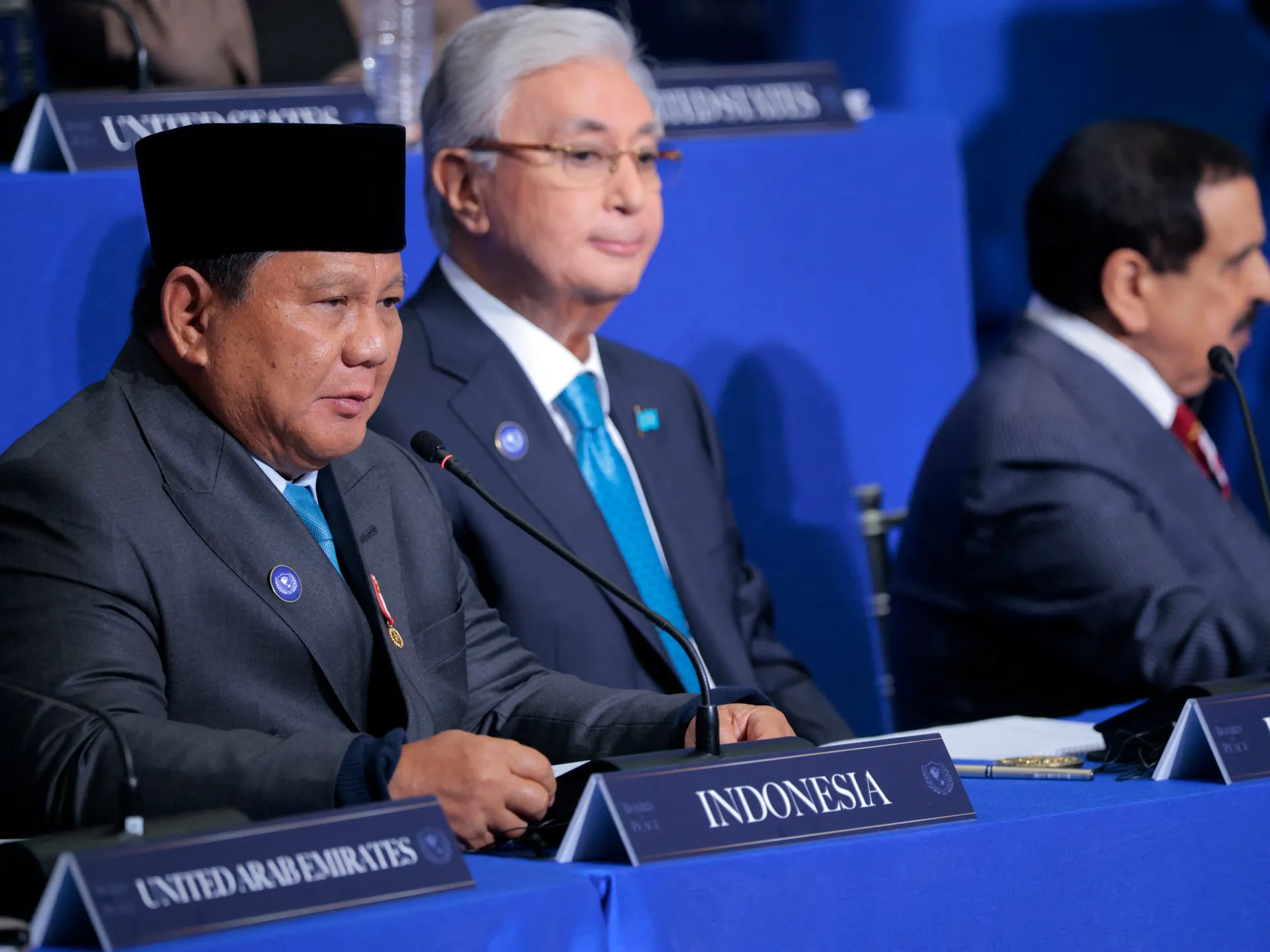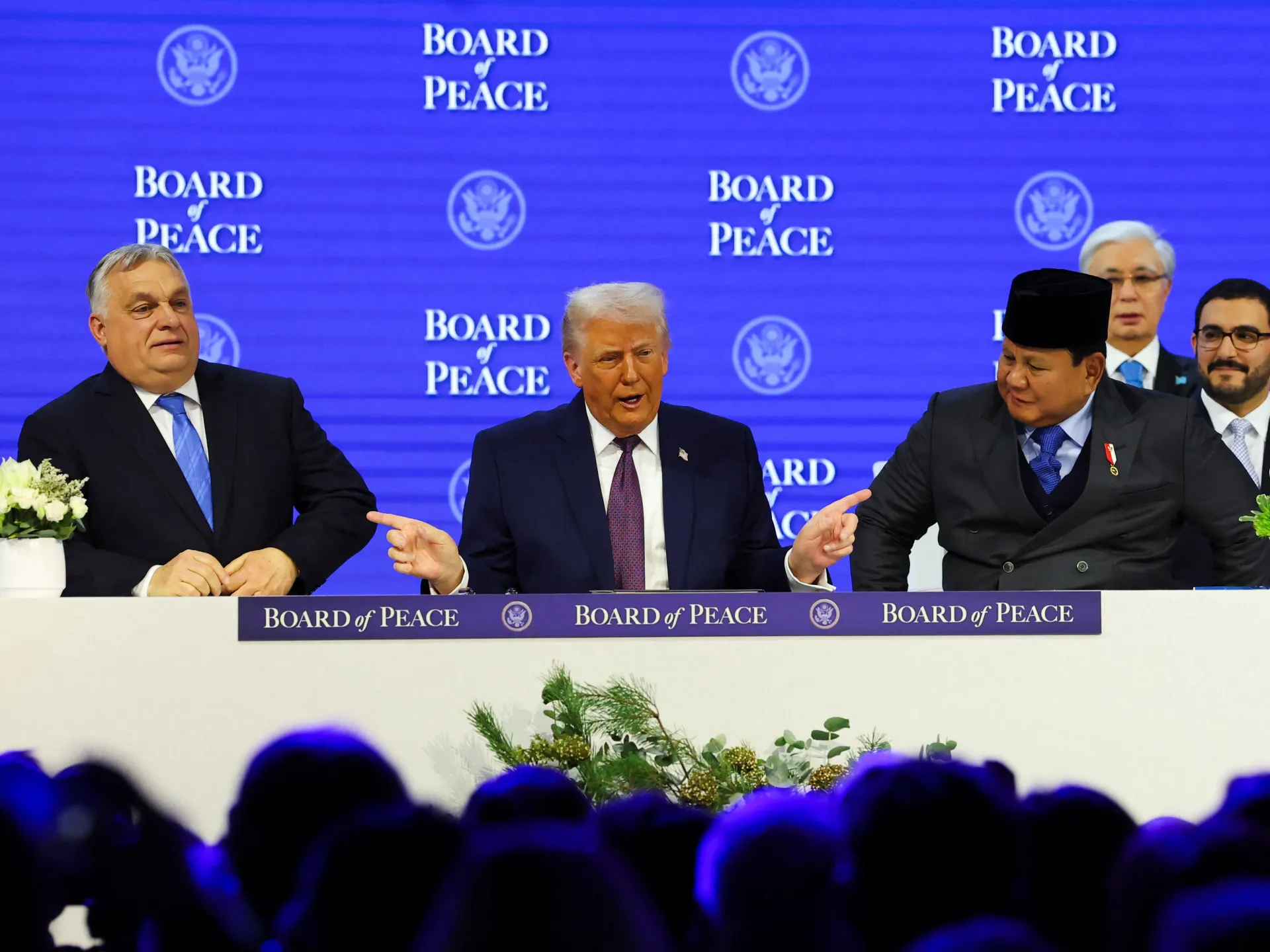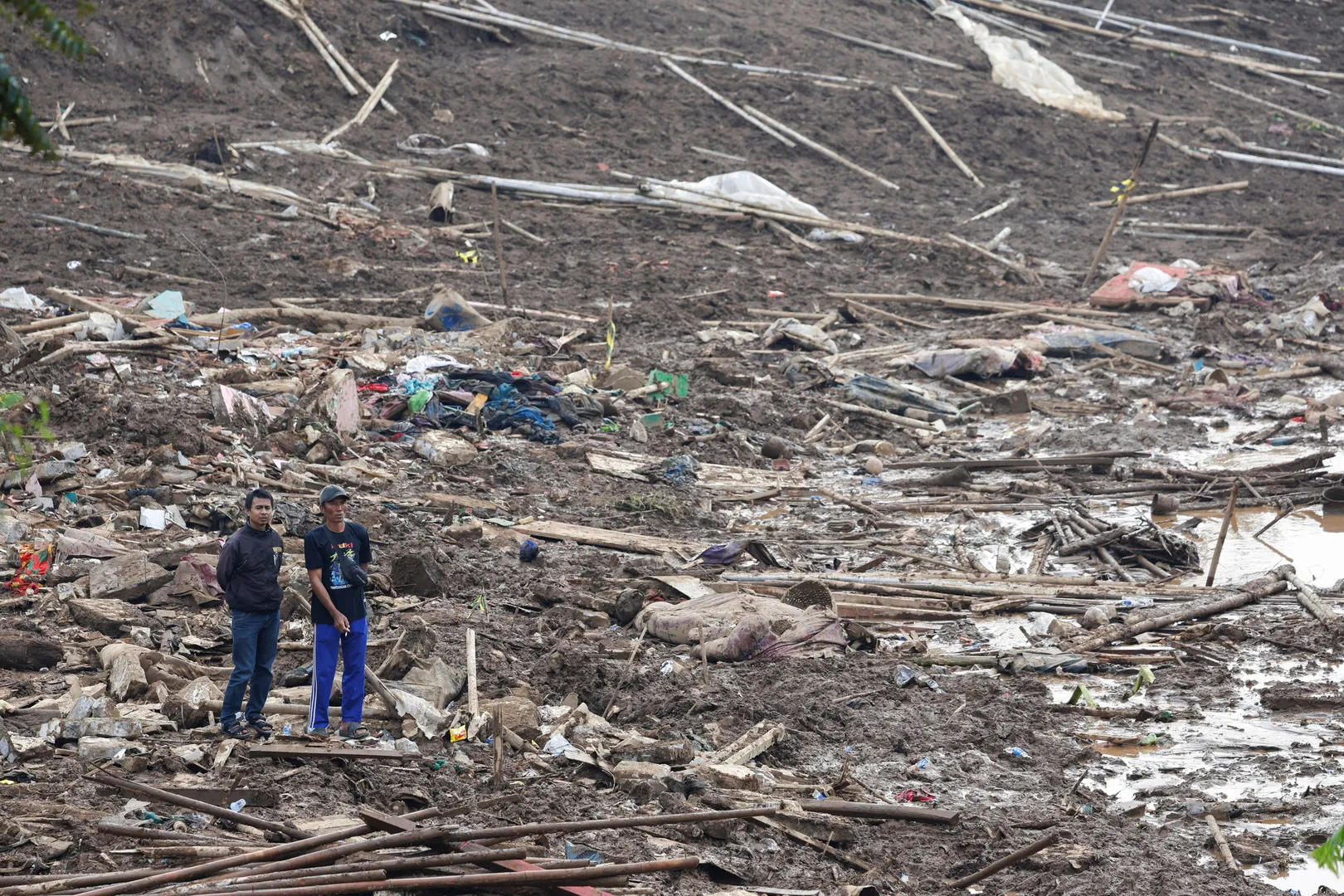Indonesia, Morocco, Kosovo among 5 countries to send troops under Gaza plan | Gaza News
Kazakhstan and Kosovo have also pledged to participate, while Egypt and Jordan will provide training for police officers.
Indonesia, Morocco, Kazakhstan, Kosovo and Albania have pledged to send troops to Gaza, the commander of a newly created International Stabilization Force (ISF) has said during a meeting of United States President Donald Trump’s so-called Board of Peace.
US Army General Jasper Jeffers, who has been appointed as the head of a future Gaza stabilisation force by Trump’s board, said on Thursday that the Indonesian contingent to the mission has “accepted the position of deputy commander”.
Recommended Stories
list of 4 itemsend of list
“With these first steps, we will help bring the security that Gaza needs,” Jeffers said during a meeting of the board in Washington, DC.
Indonesian President Prabowo Subianto, who was among several world leaders participating in the meeting, said his country would contribute up to 8,000 personnel to the planned force “to make this peace work” in the war-torn Palestinian territory, where Israel’s genocide has killed at least 72,000 people.
Kazakhstan’s President Kassym-Jomart Tokayev said his country will also send an unspecified number of troops, including medical units, to Gaza, while Morocco’s Foreign Minister Nasser Bourita said that his country is ready to deploy police officers to Gaza.
Albania, whose prime minister recently made a two-day official visit to Israel, has also said it will contribute troops, while neighbouring countries Egypt and Jordan have said they will participate by training police officers.
Indonesia, which was one of the first countries to commit to sending troops, has sought to reassure potential critics that its participation is intended to ensure international law is upheld in Gaza, amid Israel’s genocidal onslaught.
‘Indonesian troops will not be involved in combat operations’
Indonesia’s foreign minister met with both United Nations chief Antonio Guterres and Palestinian ambassador to the UN Riyad Mansour in New York on Wednesday, in advance of President Subianto’s participation in the Board of Peace meeting.
“Indonesia’s mandate [on troop deployment] is humanitarian in nature with a focus on protecting civilians, humanitarian and health assistance, reconstruction as well as training and strengthening the capacity of the Palestinian Police,” Indonesia’s Ministry of Foreign Affairs said in a recent statement, according to the Jakarta Post newspaper.
“Indonesian troops will not be involved in combat operations or any action leading to direct confrontation with any armed group,” the ministry said, responding to questions raised over its future role in Gaza by Amnesty International.
The head of Amnesty International Indonesia, Usman Hamid, has voiced concerns that Indonesia risked violating international law through its participation in the Board of Peace and the planned stabilisation force for Gaza.
Hamid warned that Indonesia’s deployment of troops to Gaza “means putting Indonesia at risk of participating in a mechanism that will strengthen violations of International Humanitarian Law”.
“The Peace Council does not include members from the most disadvantaged Palestinians, but instead includes members from Israel, which has for nearly eight decades carried out an illegal occupation and apartheid against the Palestinian people, even committing genocide in Gaza,” Hamid wrote last week in an open letter to the speaker of the People’s Representative Council of the Republic of Indonesia.
Palestinians have also voiced concerns that Trump’s Board of Peace will only further entrench Israel’s illegal occupation of the Gaza Strip, as Israeli forces continue to carve out more “buffer zones” and restrict the entry of food and other aid, months into a so-called “ceasefire” with Hamas, during which almost 600 Palestinians have been killed in Israeli attacks.
The Gaza stabilisation force differs from other peacekeeping forces deployed by multilateral organisations such as the UN or the African Union.
In neighbouring Lebanon, more than 10,000 peacekeepers from 47 countries continue to participate in the United Nations Interim Force in Lebanon (UNIFIL), which was created in 1978.
Indonesia, along with Italy, is one of the largest contributors of troops to UNIFIL, which has repeatedly come under fire from Israeli forces, despite a fragile ceasefire between Israel and Hezbollah.










